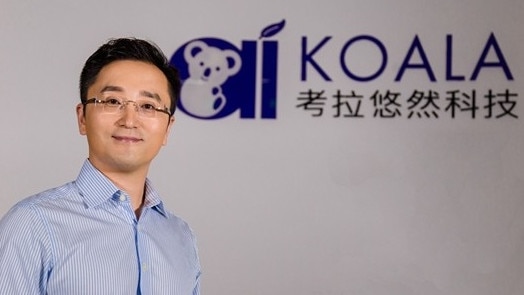UQ researcher probed over AI Uighur surveil
A professors is being investigated for forming a company allegedly used to surveil Uighur Muslims.

The University of Queensland has launched an investigation into one of its professors who formed an artificial intelligence company — allegedly used by Beijing to surveil minority Uighurs — while working at the institution and receiving taxpayer-funded research grants.
Heng Tao Shen, who became one of UQ’s youngest ever professors in 2011, formed the China-based Koala AI Technology in 2015 after being named as an elite “Thousand Talents Scholar” by the Chinese Communist Party.
An Australian Strategic Policy Institute paper to be released today reveals Professor Shen, who has relocated to China but still holds an honorary professorship at UQ, built Koala AI into a $200 million company that provides surveillance technology used by the Chinese government to monitor Uighur Muslims.
Chinese-language documents uncovered by ASPI analyst Alex Joske reveal Professor Shen was appointed as a Thousand Talents Scholar by Beijing in 2014, and also took up a post at the University of Electronic Science and Technology China in 2014 as director of its future media centre.
However, UQ told The Australian Professor Shen was employed in a paid research and teaching position at the university’s School of Information Technology and Electrical Engineering from 2004-2017, and remains an unpaid honorary professor at the school.
It said Professor Shen had not disclosed additional appointments during that time, or the commercialisation of any of his research. “The university will be making further inquiries based on the information provided,” UQ said. “Our initial inquiries indicate there is no record of any additional paid appointments for Professor Shen during this time of paid employment with UQ.
The university requires researchers to comply with Australian government guidelines, including the principles outlined in the National Statement on Ethical Conduct in Human Research and the Defence Trade Controls Act.
UQ’s policy on the commercialisation of research also requires researchers proposing to commercialise their work with UQ to disclose this to the university. We have no record of such a disclosure from Professor Shen.”
The case comes as the Australian government prepares to release new guidelines requiring universities to consult security agencies before collaborating with foreign partners on sensitive scientific research. Professor Shen received $2.6m in Australian government grants from 2006-2018, including up to $1.6m for Australian Research Council projects he worked on after establishing Koala AI. One of Professor Shen’s ARC grants, a $778,000 Future Fellowship, required him to spend two years working full-time on a project — “Realising the value of mobile videos with context awareness” — between 2013 and 2016, and precluded him from taking up other appointments.
The ARC’s Future Fellowship rules also state that recipients must avoid “engaging in any activity, participating in any association, holding any membership or obtaining any interest that is likely to conflict with or restrict that party participating in the project”.
China is perfecting the use of AI technologies in the monitoring of ethnic Uighurs using facial recognition and other surveillance technologies to track and oppress the Muslim minority population.
At a 2018 conference in Xinjiang, Professor Shen demonstrated a surveillance system Koala AI supplies to the Altay region at Xinjiang’s northwestern edge. Professor Shen said the system could uncover, categorise and recognise targets, alerting police to “suspicious individuals and cars”, according to Mr Joske’s research. Mr Joske said the government, universities and scientists needed to do more to scrutinise end users of their research, given the enormity of human rights abuses being perpetrated by the Chinese government in Xinjiang.
“Meeting basic ethical standards would only affect a tiny share of research collaboration between Australia and China,” he said. “But, currently, universities do not appear to have sufficient internal mechanisms to enforce and ensure compliance with their policies on conflict of interest and external employment.”




To join the conversation, please log in. Don't have an account? Register
Join the conversation, you are commenting as Logout